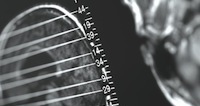Neurosurgical and Spinal Conditions
Spinal
Neurosurgeons and spinal surgeons see a wide spread of differing spinal conditions.
Much of this comprises problems due to degeneration of the spinal column and associated discs with age leading to back pain and arm / pain
The links on the left will provide further information on some of the more common symptoms seen, and the common causes for these symptoms.
In the treatments section, some of the more common spinal treatments, including surgery are outlined.
Neurosurgeons also deal specifically with rarer conditions of the spine such as tumours and cysts that may require surgical exploration of the spinal cord and its surroundings.
Brain
Many medical problems affecting the brain are treated by allied specialists such as neurologists. However, advances in surgical techniques and brain scanning has allowed operations to be performed in patients thought to be inoperable in past years, and generally with a lower complication rate.
Operations on the brain can largely be divided into trauma, tumours, disorders of the blood vessels, and hydrocephalus (water on the brain).
Trauma is problem associated commonly with accidents involving a head injury. This is usually dealt with via the accident and emergency department, the neurosciences intensive care unit at the John Radcliffe hospital and the duty consultant neurosurgeon. Surgery can involve the removal of blood clots on the brain, or controlling brain swelling with drugs on the intensive care. Oxford is now a regional major trauma centre and thus this type of work forms a large part of our emergency workload.
Tumours of the brain can be largely divided into tumour of the brain itself, tumours inside the skull but outside the brain pressing on the brain, and pituitary tumour. Please see the relevant section to the left.
Disorders of the blood vessels include aneurysm, nests of fragile blood vessels ( arteriovenous malformation) and the occasional bleeding they can cause. In the future there will be a section on subarachnoid haemorrhage to further explain this.
Hydrocephalus is less common in adults and due to a build up of the normal fluid inside the fluid spaces (ventricles) of the brain. This can because of a blockage in the system due to blood, a cyst or tumour, or failure of the fluid to be reabsorbed so that it builds up. The mainstay of treatment is diversion of the fluid using a silicone shunt with a valve to another body compartment (usually the abdomen), or a telescopic operation to create a new channel.
About Simon Cudlip

Mr Simon Cudlip is a consultant neurosurgeon and spinal surgeon based in Oxford in the United Kingdom. Read more »